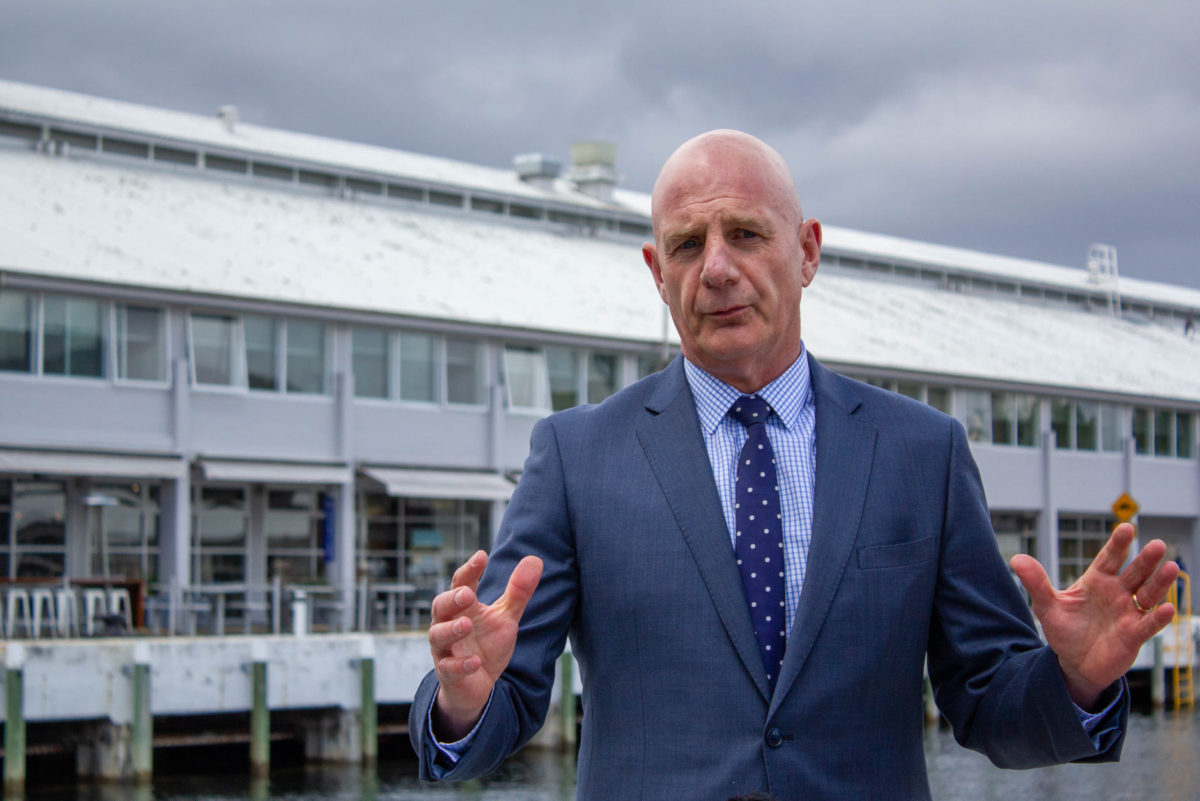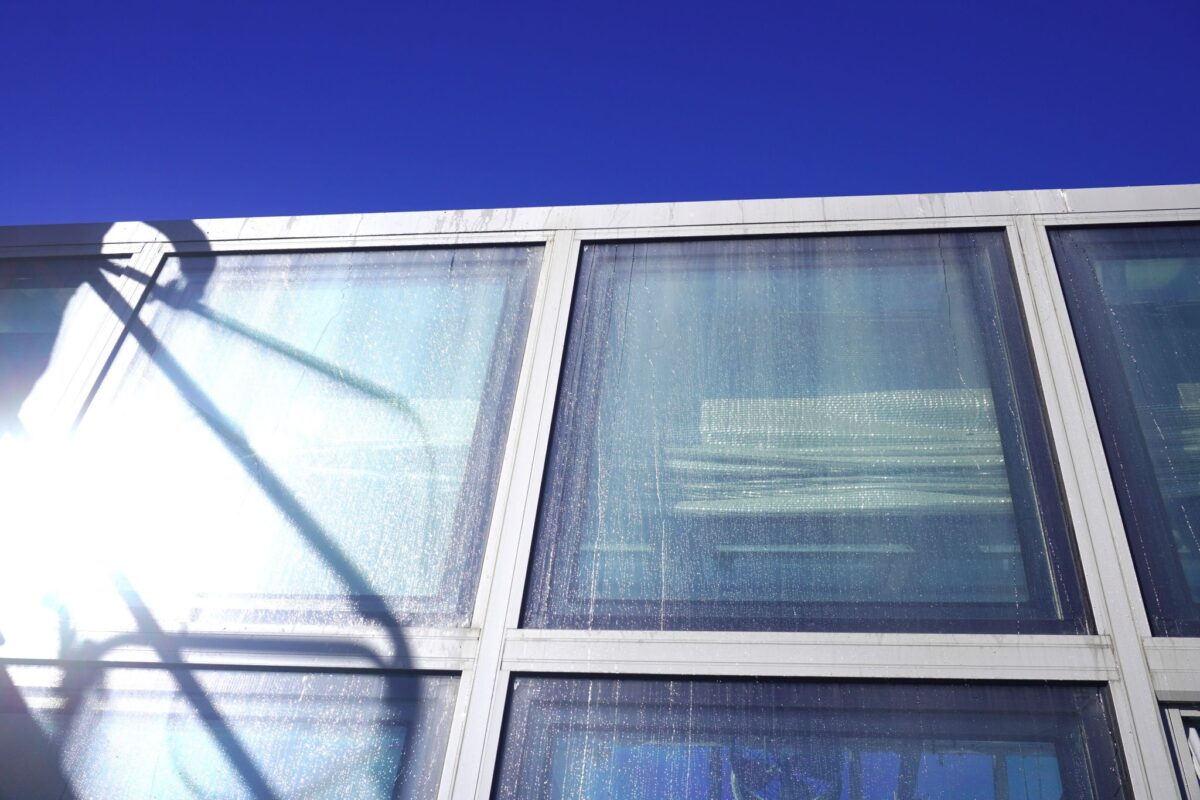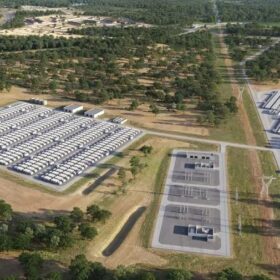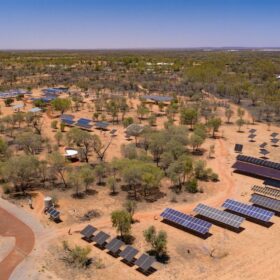Last week Peter Gutwein replaced Will Hodgman as the leader of the Liberal Party in Tasmania and in turn was sworn in as the 46th Premier of Tasmania. Soon after Gutwein announced that he would also become the first Tasmanian Liberal Minister for Climate Change.
In an announcement of his Ministry, Gutwein noted that less predictable and more volatile weather patterns and Tasmania’s global-leading position on carbon emission reduction “will be a key priority of my Government, underpinned by our strong investment in renewable energy as the battery of the nation, investment in irrigation and water storage, and fuel reduction strategies.”
Tasmania’s renewable energy ambitions are no joke, least of all to them, indeed for Tasmanians their ambitions are a strong source of pride. In Gutwein’s first speech as Premier of Tasmania he said: “We are the country’s renewable energy powerhouse and we can and will become the Battery of the Nation.”
The Battery of the Nation (BON), led by Hydro Tasmania (a Tasmanian Government company and the nation’s largest generator of clean energy) has been on the cards since June 2018 when the Australian Renewable Energy Agency (ARENA) funded the program to the tune of $5 million. Since then the program has been expounded and its true potential revealed.
In a double-whammy of white papers, entitled “How Battery of the Nation can contribute to Victoria’s energy needs and objectives,” and “Tasmania’s ‘green hydrogen opportunity – what makes Tasmania a unique, green hydrogen zone?,” respectively, Hydro Tasmania (HT) stresses not just the viability of the project, but the necessity of it. HT’s analysis suggests the potential for Tasmania and Victoria to work together on the Battery of the Nation initiative would go a long way to ensuring a renewable future, not just for those individual states, but indeed for the wider National Electricity Market (NEM).
Moreover, The analysis showed that green hydrogen can be produced in Tasmania for approximately 10-15% less than other Australian power grids needing to offset emissions, and 20-30% less than from dedicated off-grid renewables, due to the high plant utilisation that can be supported by Tasmania’s hydropower.
Tasmania’s potential to produce green hydrogen using solar and wind alone due to its “firming” ability provided by vast hydroelectric generation means that the island state can undercut producers that use grid-sourced electricity.
Hydro Tasmania’s CEO, Steve Davy, said a large-scale, cost-competitive green hydrogen production industry could be developed in the state over the coming decade.
Tasmania’s BON ambitions have also been firming in recent months as its unique potential has been revealed to investors and early reports on the proposed Marinus Link, a second interconnector between Tasmania and Victoria, demonstrated that the cost of construction pales in comparison to the economic advantages. One such key advantage would be the transportation of green hydrogen, especially considering transportation via pipeline across the Bass Strait would mean the clean fuel would not incur any efficacy loses as it would in shipping.
Gutwein has long held ambitions to become Premier of Tasmania. Interestingly, one of the reasons these ambitions have had to be held so long is due to his early rebelliousness, if one can call a failure to tow the party line in perpetuity ‘rebellious’. In 2003 the ABC described Gutwein as the “Rebel Liberal Party member” who became the first Tasmanian MP in more than five years to cross the floor.
Gutwein crossed the floor as the lone supporter of a Greens bill to set up a commission of inquiry into child abuse. The move, described by then Opposition leader Rene Hidding as “kamikaze politics” resulted in Gutwein being stripped of his shadow treasury, education and employment portfolios and a concession that though he would one day like to be Premier, his aspirations had been setback by his ‘radical individualism’.
Of course, in the end, Gutwein has become Premier of Tasmania, and a figure who has expounded principles in politics might just be the figure to pursue Tasmania’s renewable energy ambitions, no matter what his Federal Liberal colleagues on the mainland think.
This content is protected by copyright and may not be reused. If you want to cooperate with us and would like to reuse some of our content, please contact: editors@pv-magazine.com.









3 comments
By submitting this form you agree to pv magazine using your data for the purposes of publishing your comment.
Your personal data will only be disclosed or otherwise transmitted to third parties for the purposes of spam filtering or if this is necessary for technical maintenance of the website. Any other transfer to third parties will not take place unless this is justified on the basis of applicable data protection regulations or if pv magazine is legally obliged to do so.
You may revoke this consent at any time with effect for the future, in which case your personal data will be deleted immediately. Otherwise, your data will be deleted if pv magazine has processed your request or the purpose of data storage is fulfilled.
Further information on data privacy can be found in our Data Protection Policy.